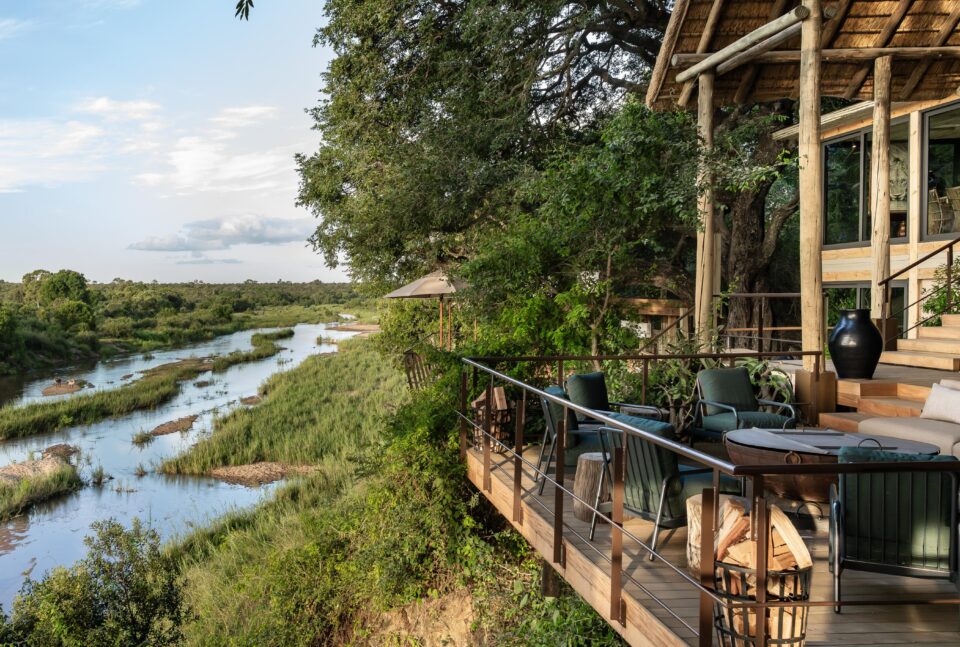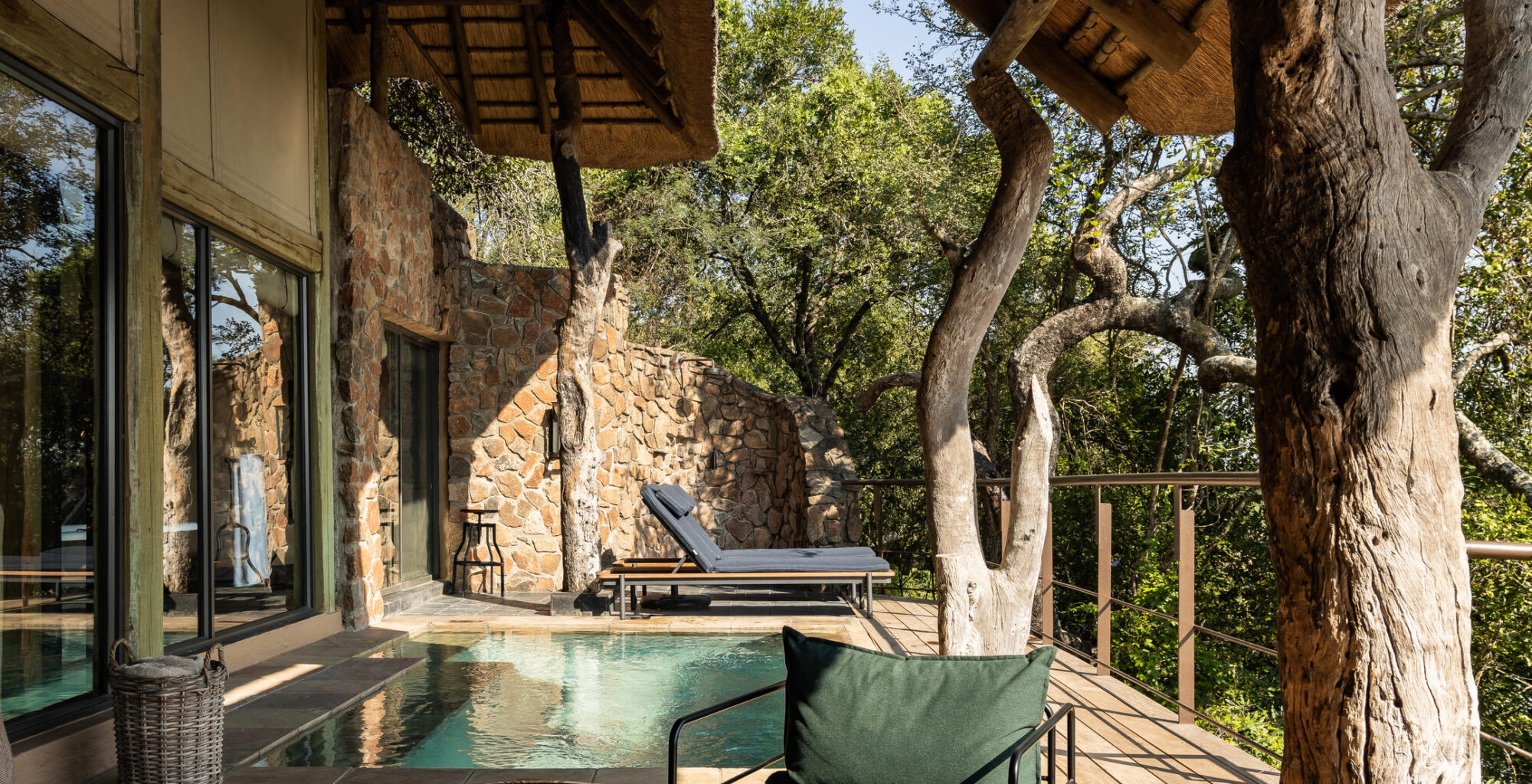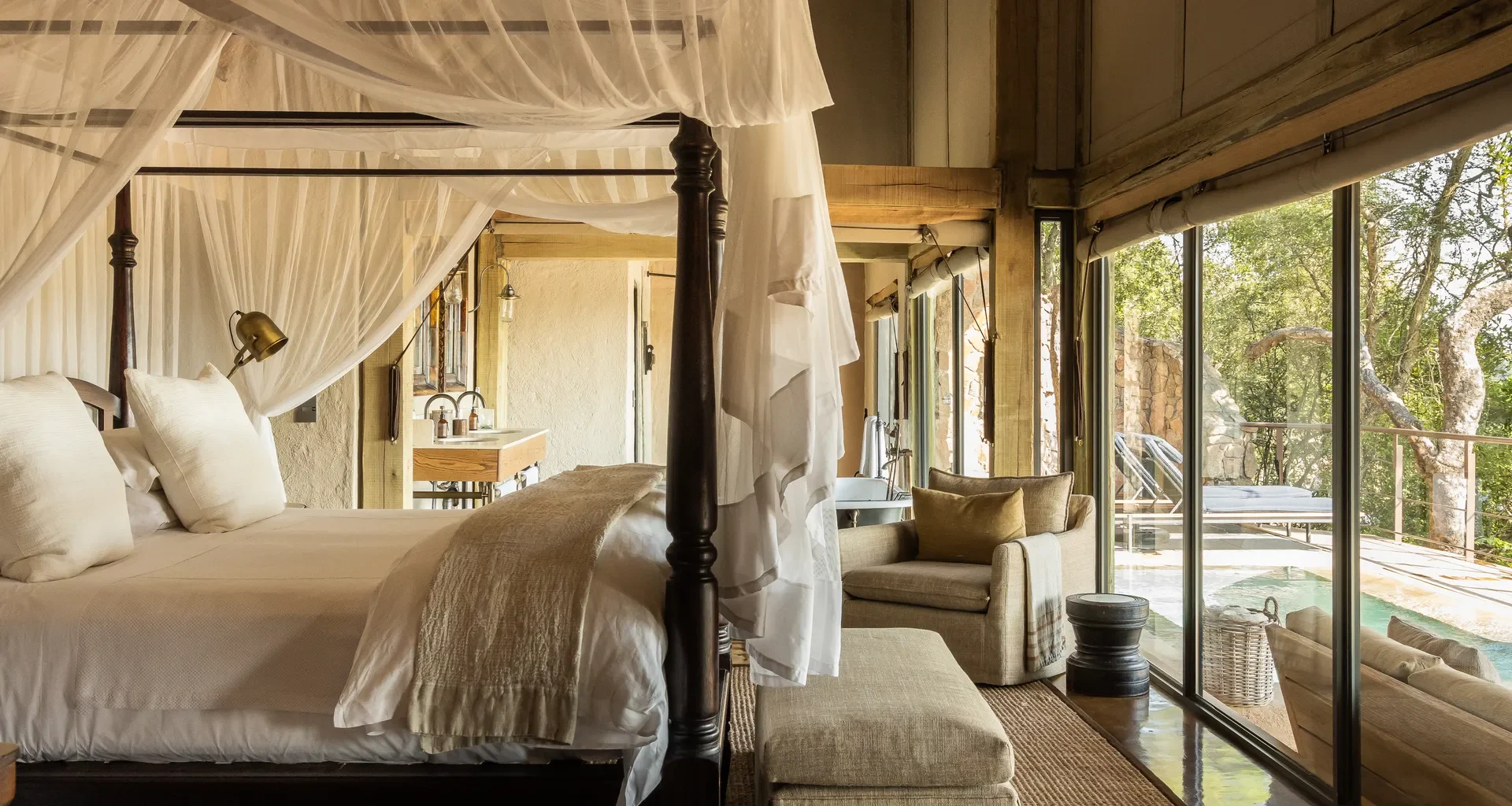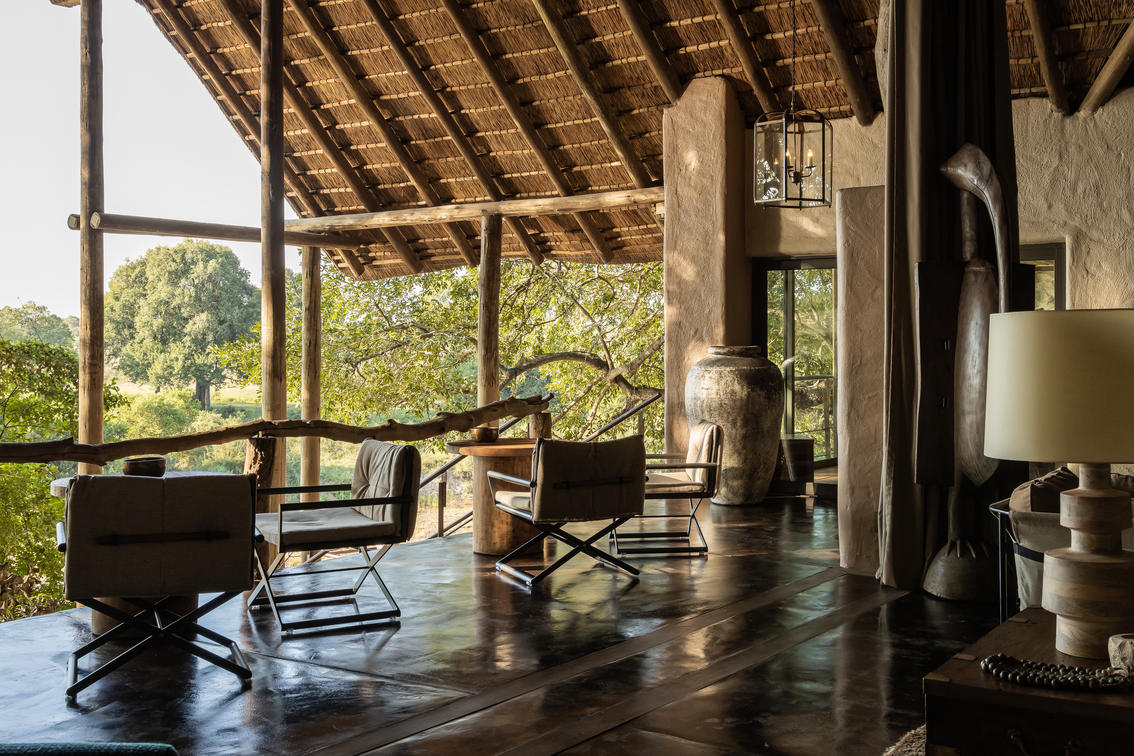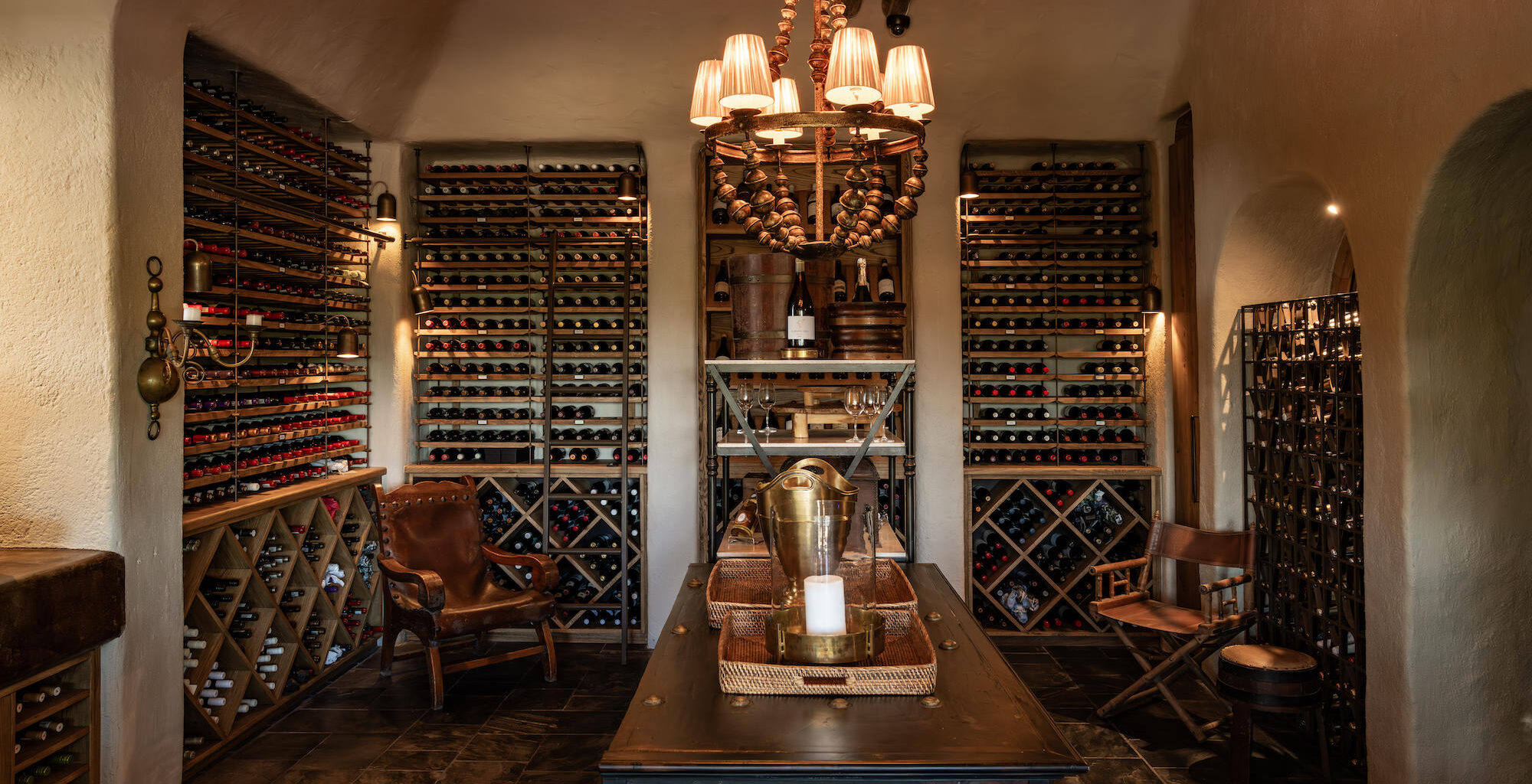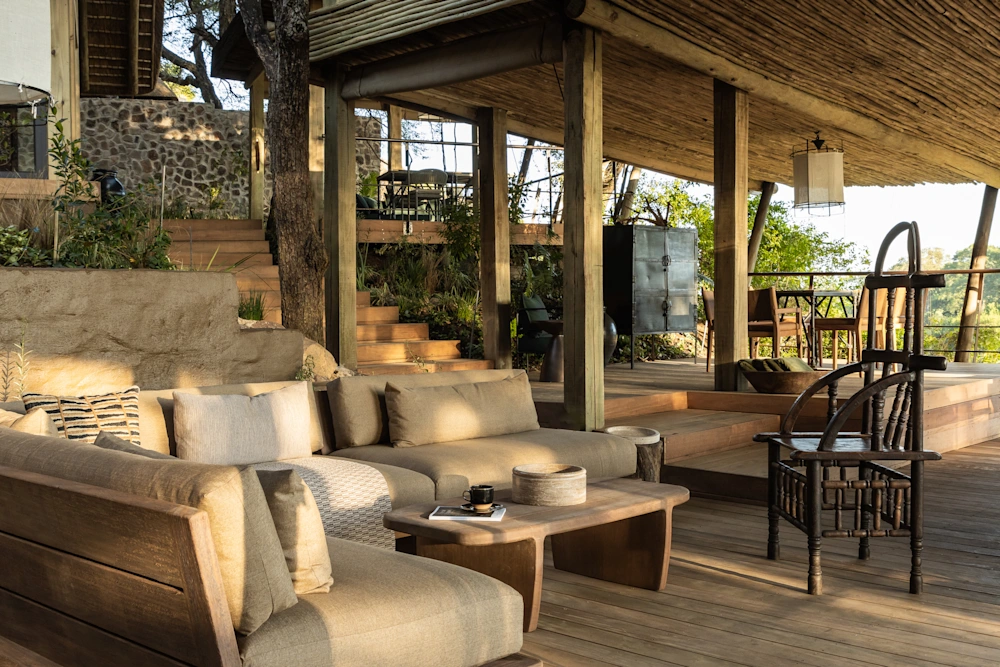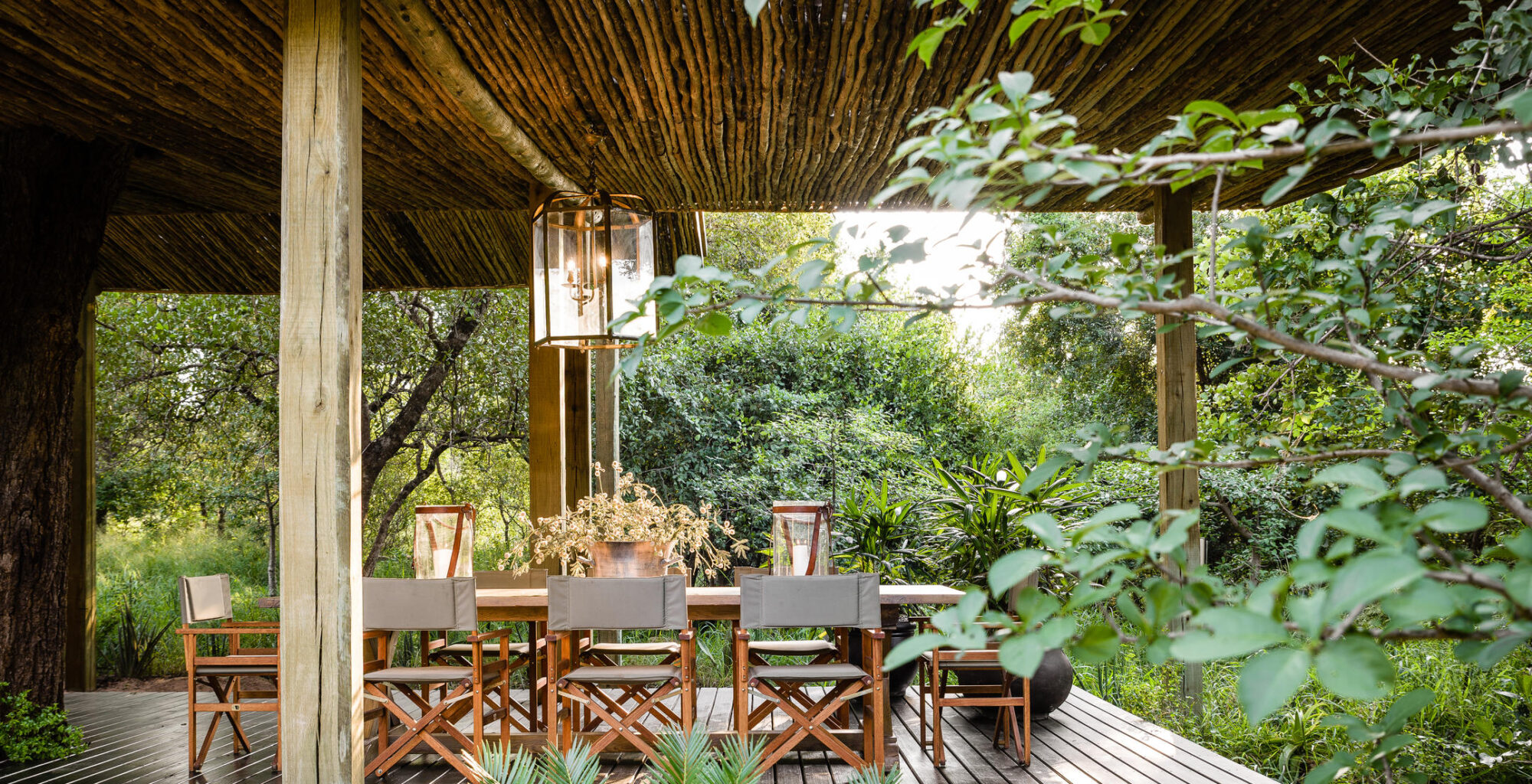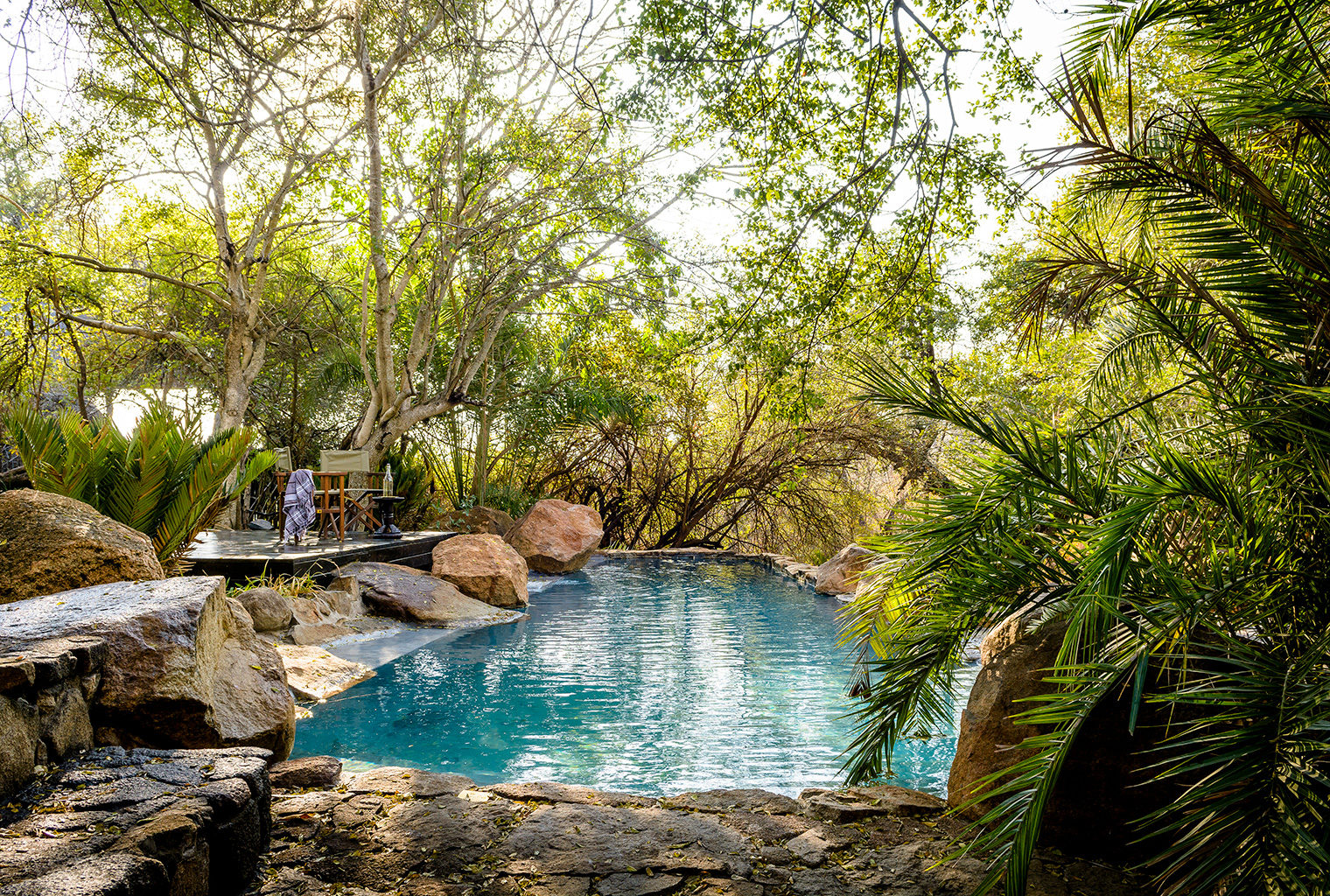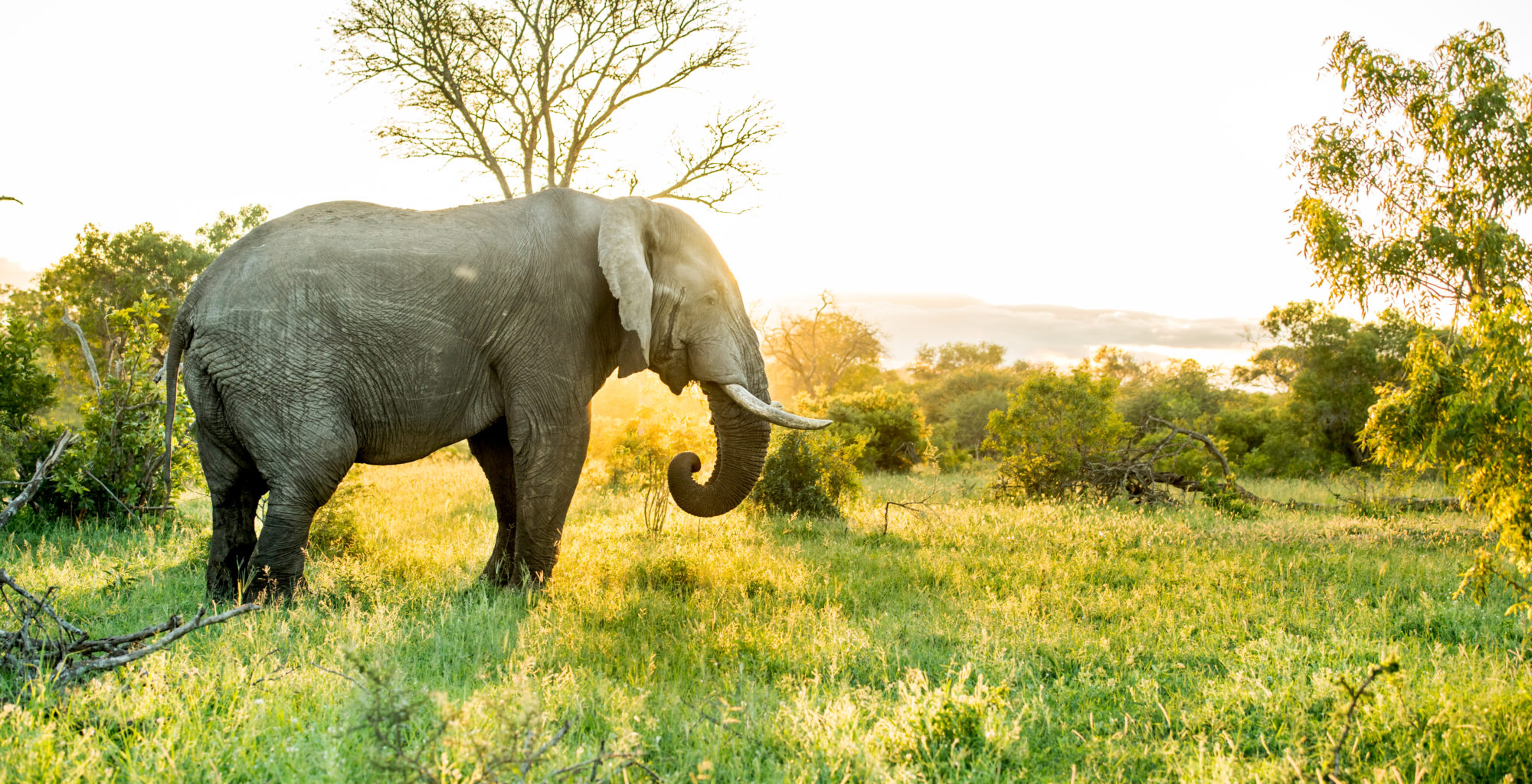A stone, wood and thatch build situated in the shade of a mixed grove of knobthorn and jackalberry trees overlooking the Sand River, Singita Ebony consists of a mess area and twelve suites.

Overview
Raised on a wooden platform, the overall look of the main lodge is colonial in feel; leather wing-back armchairs, brass utilities, zebra skins, ostrich eggs, an enormous chandelier, a walk-in fireplace, horns, and a stuffed buffalo head decorate it. Interesting, eclectic clay pots are balanced on wall supports above the dining room, woven stick cladding is studded with photographs and much of the furniture is covered with African throws. The shared areas include a lounge, veranda, dining room, bar, gym, spa, pool, library and cellar.
Food & service
As per the Singita experience, the food and service excel; we thoroughly recommend sampling the lodge’s dangerously good Malva pudding.
Rooms
Rooms are spacious with views over the Sand River that cuts through the concession. The design is open-plan with a reading area, bedroom and bathroom leading into each other. There is a considerable deck area and outdoor shower with a private plunge pool leading out of the large glass-fronted sliding doors. The four poster beds are simply beautiful, and the stand-alone roll-top baths take centre stage in the bathroom.

Activities
The wildlife in the Sabi Sands area is world-class, and activities at Singita Ebony include wildlife drives, guided walks, archery and stargazing.
Impact
Conservation
At each of Singita’s lodges, there are dedicated teams whose sole focus is to preserve the land and to protect and increase the wildlife to match its natural carrying capacity. This includes environmental care and anti-poaching units. Singita’s guiding teams are selected on the basis of their passion and knowledge of the bush and then deliberately up-skilled by the Head of Guide Training and Development to ensure guests have rich, educational and enjoyable experiences during their time at the camps.
Commerce
Singita has a strong bond with its local communities. Many of their staff live locally and are transported to and from their homes on a daily basis, and most are ex-pupils of the local schools which Singita supports. Singita also deliberately manage their lodges in a way that maximises the benefits to local communities so that they can experience the positive economic effects of eco-tourism.
Community
The Singita School of Cooking is located on-site at the staff village that serves Lebombo and Sweni. It was established with the aim of encouraging the development of culinary skills amongst local youth. Each year, eight to ten students are selected – based upon clear criteria including a real interest in cooking – to participate in a 1-year development programme.
The lodges are also involved in supporting schools in the local communities in various ways, such as providing practical and educational support to pre-schools and assisting communities with access to fresh water. Support for the pre-schools ranges from assisting with maintenance challenges to the planting of indigenous trees in the school grounds, and the much larger challenge of assisting with the improvement of the quality of education provided. Recently the Singita Community Development Trust initiated the Growing to Read program in partnership with the non-profit READ Educational Trust, which has the dual aim of advising teachers and parents while providing essential equipment such as stationary.
